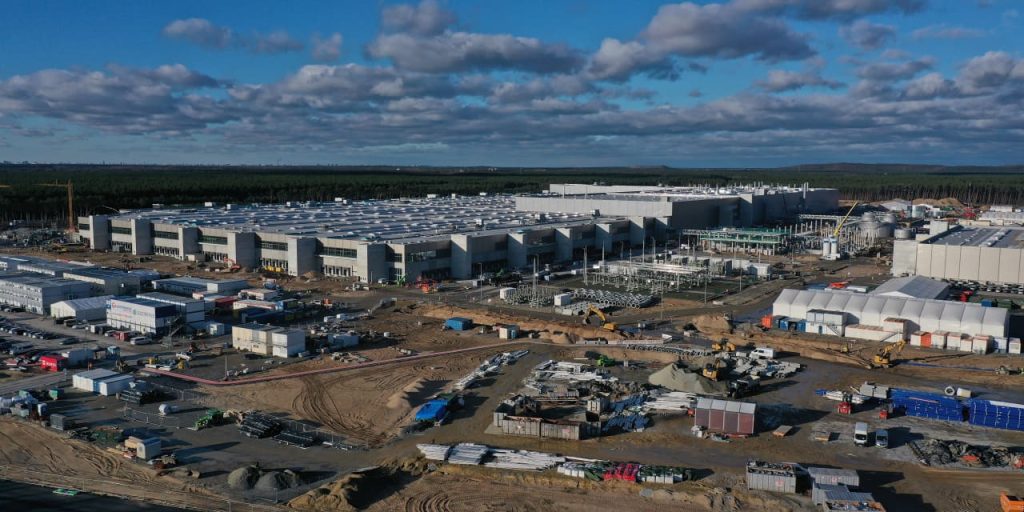Tesla
is increasing pay for workers in Germany. It’s a reminder that the electric-vehicle maker can’t totally ignore the union pressures that have rocked Detroit car companies.
Tesla
(ticker: TSLA) executives disclosed a 4% wage increase for workers at its site near Berlin during CEO Elon Musk’s visit to the factory last week, The Wall Street Journal reported on Sunday, citing people familiar with the matter.
Tesla stock was up 2.4% in premarket trading on Monday while
S&P 500
and
Nasdaq Composite
futures were up 0.2% and 0.3%, respectively.
Tesla has come under pressure from local German politicians and the IG Metall union over conditions at the Berlin site. The plant produces about 5,000 cars a week, according to the company, and has around 11,000 workers, of which more than 1,000 are in IG Metall. Union membership in Germany is a little different than in the U.S. Essentially, each worker makes a decision to join a union, and not every union employee is paid based on a collective bargaining agreement like the ones just negotiated by the UAW and Detroit Three auto makers.
The promised wage increase is significantly less than the raises won by the United Auto Workers union for U.S. employees at
Ford Motor
(F),
General Motors
(GM), and
Stellantis
(STLA) in its recent strike. The deals agreed by the Detroit car manufacturers envisage wage rises of about 25% over the life of the contract, plus other adjustments for inflation and seniority.
They have yet to be ratified by UAW members, but approval by the membership is likely. For starters, there is an 11% bump to base pay rates upon ratification.
The starting point for Tesla’s German workers is different than in the U.S. UAW employees at the Detroit Three made significant wage and benefit concessions starting in 2007. Tesla’s German plant opened in 2022.
What’s more, U.S. wage increases have been tied to collective-bargaining agreements for UAW employees. The contract signed in 2019 that expired on Sept. 15 included base wage increases of roughly 1% to 2% a year on average, while inflation ran at closer to 4% a year on average.
Ford stock was up 0.6% in premarket trading, GM stock was up 0.7%, and
Stellantis
American depositary receipts were down 0.3%.
Tesla has resisted union drives at its sites in the U.S. and Europe but that’s not a guarantee it can resist wage pressures, which could cut into its margins. UAW President Shawn Fain has signaled the union’s next targets are U.S. sites without union representation.
Musk has addressed the Union issue several times in the past, pointing out that Tesla has to pay competitive wages and benefits, adding that many hourly workers get stock in the company.
In some respects, the UAW does the work for all U.S.-based auto workers. Japan’s
Toyota Motor
(7203.Japan) recently agreed to give most of its U.S. auto-factory workers a 9% pay bump from the start of next year, even though its factories aren’t unionized.
Fain explained what UAW meant for Toyota workers in a Thursday speech: “You Are Welcome.”
Write to Adam Clark at adam.clark@barrons.com and Al Root at allen.root@dowjones.com
Read the full article here




